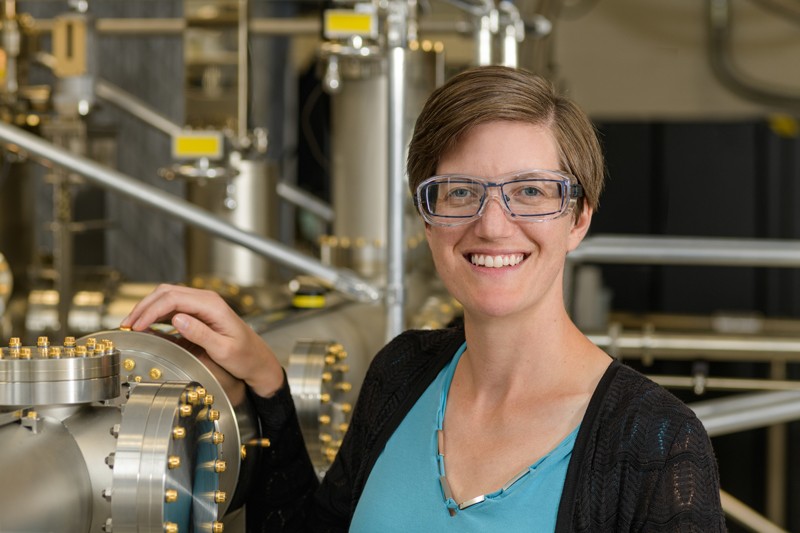Stephanie Law, Clare Boothe Luce Assistant Professor in Materials Science and Engineering at University of Delaware, was honored with the Presidential Early Career Award for Scientists and Engineers (PECASE). Law was recognized for her research in molecular beam epitaxy—or, in her words, “3D printing at the nanoscale”—and leadership in the field of topological insulators.
Stephanie Law of the University of Delaware has received a prestigious Presidential Early Career Award for Scientists and Engineers (PECASE) for pioneering research and leadership in materials and engineering.
Law, the Clare Boothe Luce Assistant Professor in Materials Science and Engineering, was nominated for the award by the U.S. Department of Energy, which also recognized her in 2017 with an Early Career Award, a prize that came with $750,000 in research support.
Established by President Bill Clinton in 1996, the PECASE is the highest honor given by the U.S. government in recognition of early-career scientists and engineers with exceptional promise as leaders in science and technology. According to the White House, it also acknowledges the contributions these scientists and engineers have made to the advancement of science, technology, engineering and mathematics (STEM) education and to community service.
Law is an expert in molecular beam epitaxy (MBE), which she describes as “3D printing at the nanoscale.” What she produces — one layer of atoms at a time — are precisely engineered materials with properties that can do new things and steer light in new and useful ways.







